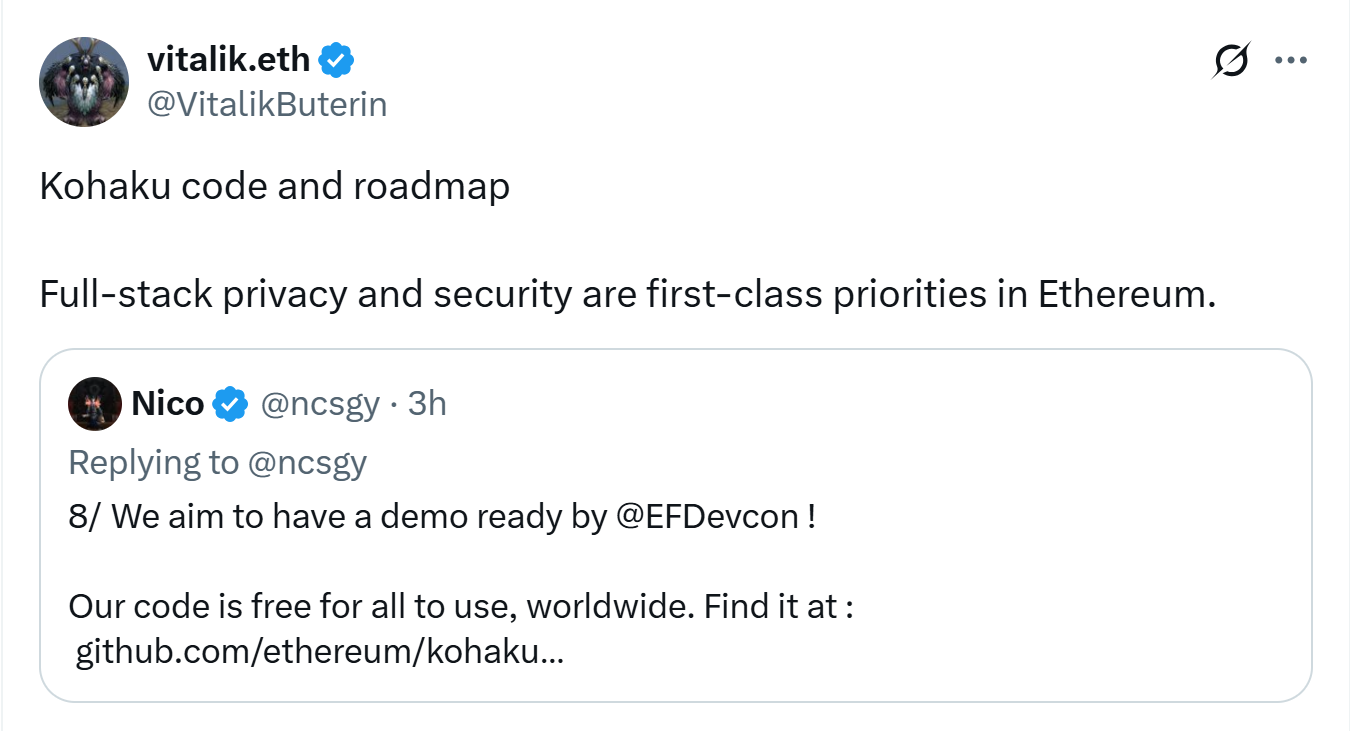
Ethereum Developers Unveil Kohaku Roadmap for Enhanced Wallet Security and Privacy
Ethereum developers announce Kohaku to improve wallet privacy and security features, with a focus on modular tools and decentralized transaction capabilities.
Ethereum developers have launched Kohaku, a strategic initiative aimed at enhancing wallet privacy and security through modular tools and decentralized transaction mechanisms.
The project, detailed in a blog post by Ethereum Foundation coordinator Nicolas Consigny, sets forth plans to develop a collection of privacy and security features within the Ethereum ecosystem.
At the heart of Kohaku lies a software development kit (SDK) intended to facilitate secure wallet functions, complemented by a reference wallet demonstrating the practical application of these tools. The initial offering will manifest as a browser extension based on the Ambire wallet, tailored for advanced users seeking enhanced control and privacy.
Kohaku’s development involves collaboration with recognized teams within the Ethereum environment, such as Ambire, Railgun, DeFi Wonderland, Helios, and Oblivious Labs. This open-source project encourages developers to contribute via GitHub repositories.
 Vitalik Buterin highlights the importance of privacy as Kohaku launches. Source: Vitalik
Vitalik Buterin highlights the importance of privacy as Kohaku launches. Source: Vitalik
Kohaku aims to diminish wallets’ reliance on centralized services that monitor transactions. Key features will incorporate private transaction capabilities, concealed IP addresses, dedicated accounts for DApps, and P2P transaction broadcasting circumventing traditional RPC servers.
Future developments will see the introduction of social recovery options utilizing tools like ZK Email or Anon Aadhaar, facilitating access restoration while preserving user privacy. ZK Email leverages zero-knowledge proofs for anonymous email verification, while Anon Aadhaar enables privacy-respecting identity verification.
Ultimately, the team aspires to enhance wallet security at a device level, envisioning a native Ethereum browser that allows secure interaction with DApps, IPFS content, and decentralized networks without compromising user data.
On Wednesday, the Ethereum Foundation initiated a new effort, the Privacy Cluster, which unites 47 prominent researchers, engineers, and cryptographers to develop privacy features at the protocol level of Ethereum’s network. This collaborative group will partner with the Privacy and Scaling Explorations (PSE) team to introduce tools designed to protect user data on Ethereum’s layer-1 blockchain, as well as foster multiple initiatives, including Private Reads & Writes, Private Proving, and Private Identities.
